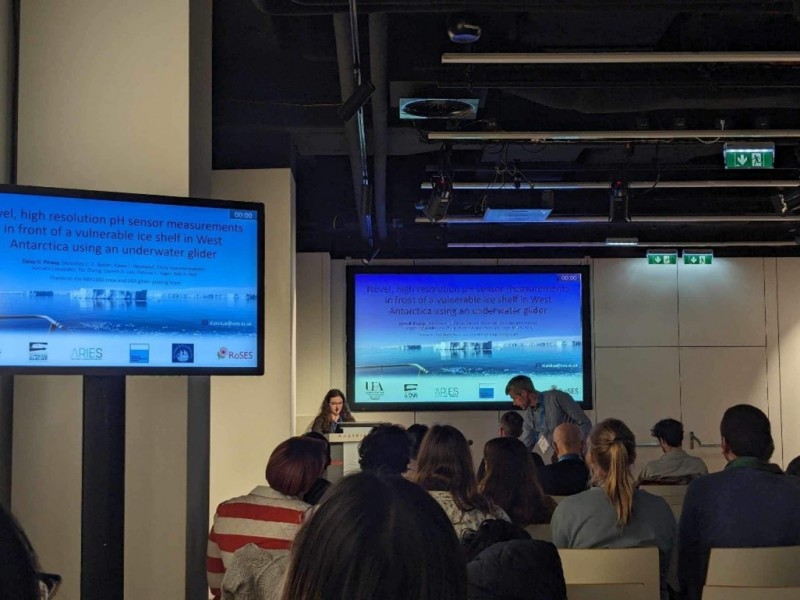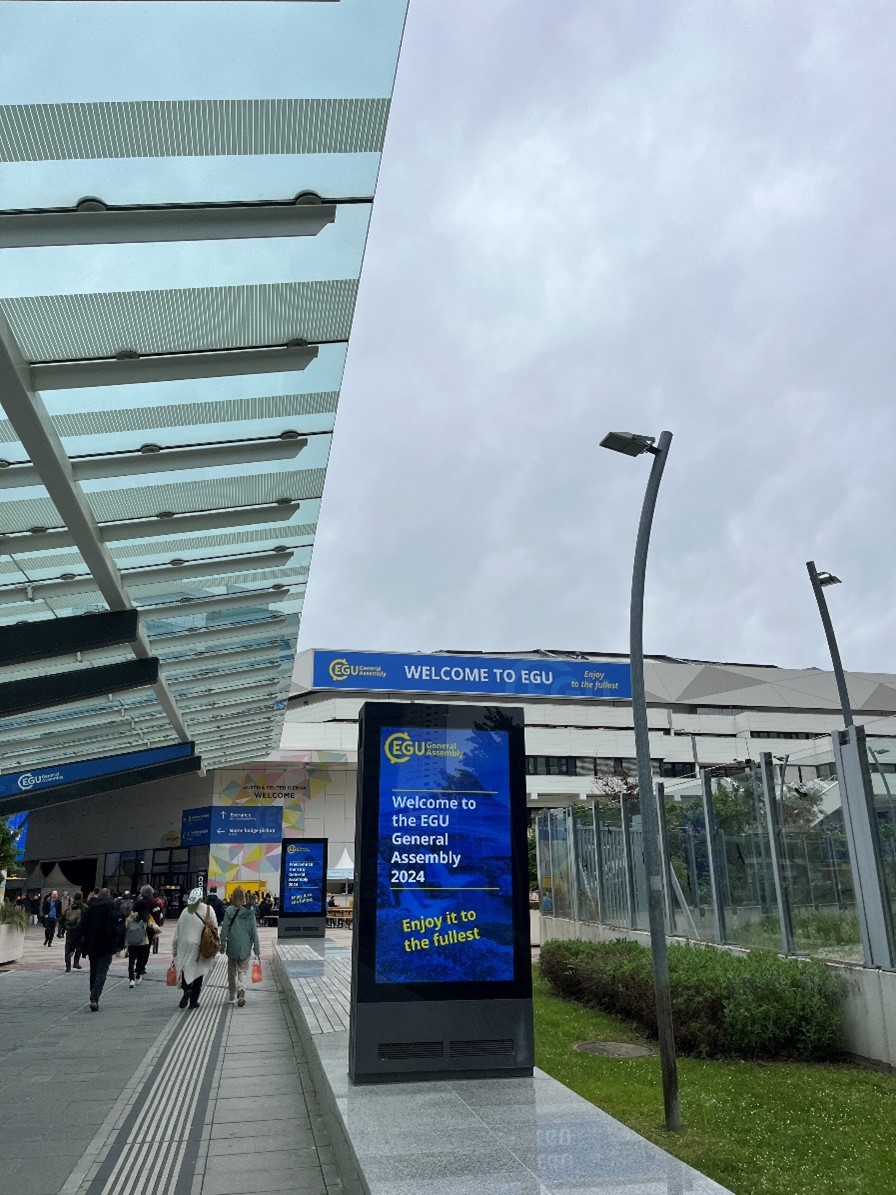Attending EGU24
Daisy Pickup
University of East Anglia

Despite being in the final year of my PhD, this was my first time attending an international conference. In addition, I was also going to present my first in person oral presentation. The journey began in an exciting way as I had decided to take the train. Covering approximately 920 miles, it took 22 hours of travel door to door, passing through France, Belgium and Germany before arriving in Vienna.

The first day of the conference was not as overwhelming as I expected. Despite the huge venue and countless number of rooms, everything was well signposted and labelled. The first couple of days held sessions not overly relevant to my research, so I took the advice of my colleagues to attend sessions that piqued my general interest, regardless of relevance to my own PhD. This allowed me to soak up information surrounding extreme marine events and how we can improve weather forecasting.
Further in the week I was inundated with interesting science surrounding biogeochemistry in the Southern Ocean and beyond. On Wednesday afternoon I was excited to present my own PhD research, and whilst it was daunting, it was something I was really glad to have done and experienced. Not only was it valuable for me to present my own work, it was rewarding to attend talks by my peers and colleagues and see the outcomes of their hard work as well.
One of my favourite parts of the conference was the poster sessions. They led to many stimulating conversations and could be a nice break after a day of talks. Another highlight was the banana bread sold by the conference café which I discovered on the first day and subsequently had a slice of every day after…
Ultimately the whole experience was completely enriching. I have left EGU feeling like I am more involved in the scientific research community. It was a very rewarding week that not only enhanced my learning, but also allowed me to gain different perspectives. It was really nice to take a break from thesis writing to remind myself of the bigger picture and where my research fits in the wider scientific community. I am very grateful to the Challenger Society for the travel award that enabled my attendance.
Profile
I am a final year PhD student at the University of East Anglia studying pH variations in the coastal Amundsen Sea, West Antarctica, under the supervision of Dorothee Bakker and Karen Heywood. As part of my research project, I was fortunate to partake in a research expedition to the Amundsen Sea where I measured pH using two novel sensors. Monitoring changes to pH, and the carbonate system as a whole, is important in the global ocean. Furthermore, the polar oceans are significantly susceptible to anthropogenic effects as they take up approximately a quarter of all anthropogenic carbon dioxide. I aim to investigate the drivers that cause pH variation in this region during the late austral summer, in front of a rapidly melting ice shelf, and the consequences this may have for the wider carbonate chemistry system.
Latest News
Royal Society Publishing Photography Competition 2025
Please see a message from the Royal Society below:
We are delighted to announce that the 2025 Competition is now open for entries until 15 August for a chance to win £1000! The competition celebrates the power of photography in conveying the wonder of science happening all around us and photographs can be submitted in the categories of: Astronomy, Behaviour, Earth Science and Climatology, Ecology and Environmental Science, and Microimaging.
The competition is free to enter and open to anyone studying or working in science at graduate level or above. Category winners will receive a one-year membership to the Royal Photographic Society and the overall winner will receive a grand prize of £1,000. Find out more: https://bit.ly/RSPphotocomp
October 2025 MEDIN Workshop: Marine Data Management, Governance and the MEDIN toolset
The Marine Environmental Data and Information Network (MEDIN) are pleased to announce that registration is now open for the next occurrence of our popular free online training workshop: ‘Marine Data Management, Governance and the MEDIN toolset’ on the 13th – 17th October 2025 on OceanTeacher Global Academy.
Marine Data Management, Governance and the MEDIN toolset
The Marine Environmental Data and Information Network (MEDIN) and OceanWise are delighted to invite you to attend our popular free online training workshop: ‘Marine Data Management, Governance and the MEDIN toolset’ on the 19th – 23rd of May 2025.
